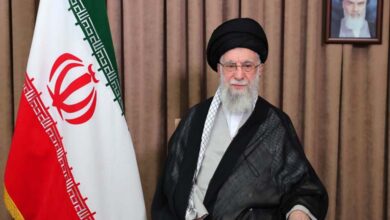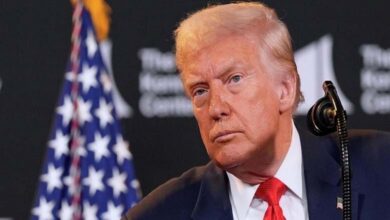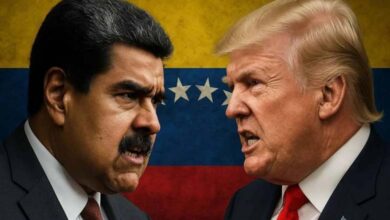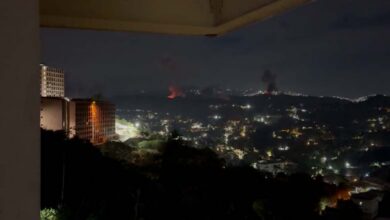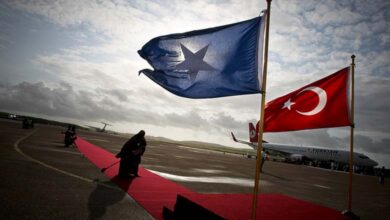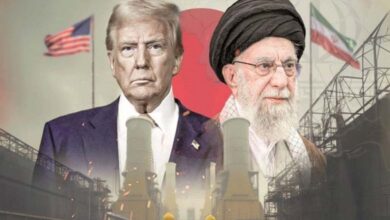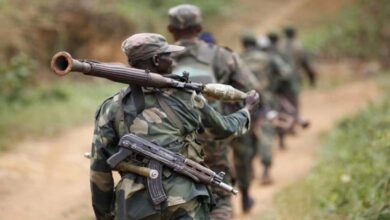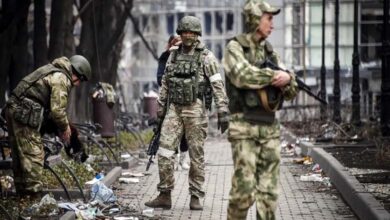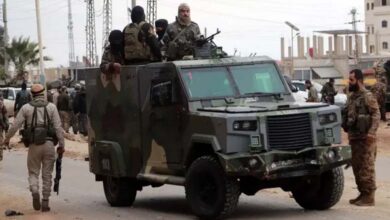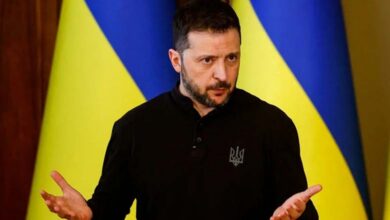Crisis in Eastern Congo: Official Moves Against Kabila and Hope for Peace with Rwanda
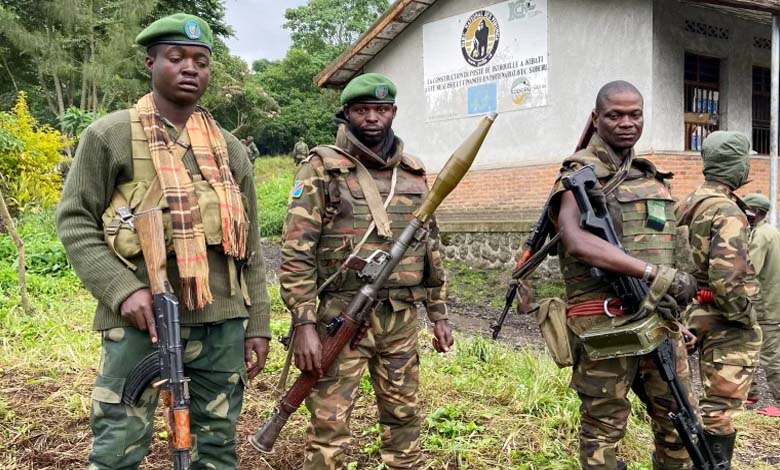
Widespread efforts are underway to contain the conflict in eastern Democratic Republic of Congo, as a peace agreement with Rwanda — accused by Kinshasa of backing rebels — is expected this Friday.
-
“Gaps on the Frontlines”… Military Trials in the Democratic Republic of the Congo
-
Ota Benga: The Congolese Man Who Exposed the “Cage of Racism”
On April 25, Rwanda and the DRC signed a “Declaration of Principles” in Washington, attended by U.S. Secretary of State Marco Rubio. The document calls for mutual respect of sovereignty, the drafting of a peace agreement by May 2, and a commitment to refrain from providing military support to armed groups. Major U.S. investments in both countries were also discussed.
At the time, Reuters quoted Rwandan Foreign Minister Olivier Nduhungirehe saying the agreement “opens the door to a final peace deal,” while Congolese Foreign Minister Thérèse Kayikwamba Wagner expressed optimism, stating it represents “more than just promises.”
-
Crisis in Eastern Congo: Will Dar es-Salaam Silence the Guns?
-
Eastern Congo on the brink of war… “Earth’s Treasures” at the heart of the conflict
Doha recently hosted several meetings to resolve the crisis, the most recent on Wednesday, bringing together — for the first time — representatives from Qatar, Togo, the United States, France, the DRC, and Rwanda. They reaffirmed their shared commitment to peace, stability, and economic development in the Great Lakes region, expressing readiness to support ongoing efforts to build mutual trust, establish a lasting ceasefire, and reach a peaceful resolution without delay.
The decades-long conflict flared again in January when M23 rebels launched an offensive in eastern Congo, capturing Goma — the second largest city in eastern DRC and capital of North Kivu, a province rich in gold and tin — as well as Bukavu, a strategic city and capital of South Kivu.
-
What is happening in the Democratic Republic of the Congo?
-
Arming Dynamics of Extremist Groups in the African Sahel: What Is the Source of Their Arsenal?
This marks the M23’s largest territorial expansion since their renewed rebellion began in 2022, amid fluctuating clashes that have intensified over the past three years. M23 is one of about 100 armed groups vying for control of the mineral-rich region near the Rwandan border, known for cobalt, lithium, uranium, and other resources.
Since 2021, more than ten ceasefire agreements have been signed in this resource-rich area, but all diplomatic efforts to end the conflict have failed.
-
Increase in terrorist organization crimes since the beginning of 2025… What are the details?
-
Ramadan “Under Fire”… Bukavu in the DRC “Suffocates”
Kabila’s Return
In parallel, the Congolese government is moving to lift the immunity of former President Joseph Kabila in preparation for prosecuting him for allegedly supporting the M23 rebel group.
Kabila, who stepped down in 2018 after nearly two decades in power, has lived abroad since late 2023, spending most of his time in South Africa. Last month, he stated he would return to help resolve the crisis in the eastern region, where M23 rebels have taken over large areas this year.
His return could complicate U.S.-backed efforts to end the rebellion in a region rich in minerals that the Trump administration seeks to capitalize on. Kabila has denied supporting the rebels.
-
Elite Units That Paved the Way for Modern Special Forces
-
One Year After the Gabon Coup: What Has Changed?
Justice Minister Constant Mutamba told reporters in Kinshasa on Wednesday evening that the military prosecutor had requested the Senate lift the lifetime immunity Kabila enjoys as a senator.
Mutamba said the DRC had collected compelling evidence of “war crimes, crimes against humanity, and massacres of unarmed civilians and soldiers,” stating that Kabila must return to face trial or be tried in absentia.
Kabila took power in 2001 after the assassination of his father. He refused to step down at the end of his final term in 2016, triggering violent protests, and only agreed to leave after the 2018 elections.
-
Is South Africa the Financial Hub for ISIS in Africa?
-
Report: Counterfeiting Money is One of the Methods Used by Terrorist Groups to Finance Their Activities
Last month, the Interior Ministry suspended the activities of Kabila’s political party (People’s Party for Reconstruction and Democracy – PPRD). The Justice Ministry also announced it would seize assets belonging to Kabila and other party leaders.
PPRD permanent secretary Ferdinand Kambere said the attempt to lift Kabila’s immunity showed the government’s fear of his return. He blamed President Félix Tshisekedi — Kabila’s political rival — for the crisis in eastern Congo.
-
The Free Circulation of Weapons and the Infiltration of Terrorist Elements Have Aggravated Terrorism in Africa
-
Analysts Uncover Terror Groups’ plans in the Dark Continent
-
Continued Terrorism Confrontation by Somalia Against Al-Shabaab
-
“Ballot Collision”: A crisis clouds the elections of Africa’s second-largest country


